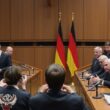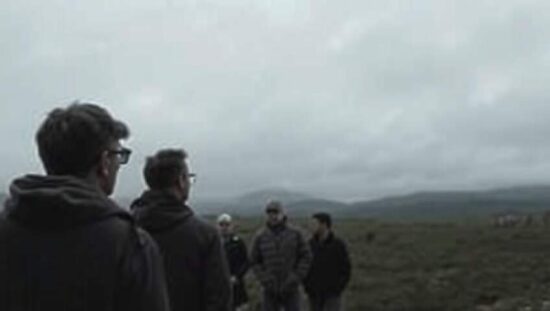Recent incidents involving suspected Russian drone incursions into NATO member states have prompted a call for measured responses from German Foreign Minister Johann Wadephul. Addressing concerns about potential escalation, Wadephul cautioned against overreacting, emphasizing that such actions risk playing directly into Moscow’s strategy of sowing unrest.
“It is precisely the aim of Putin to create unrest” Wadephul stated. “The best response is to remain calm”. He acknowledged NATO’s previously appropriate reactions and warned that a heightened response could be counterproductive.
Wadephul highlighted Russia’s apparent effort to reverse narratives in ongoing verbal exchanges, predicting an even more aggressive tactic if a military response were initiated. “Russia is testing us and wants to know what we will tolerate” he said.
While acknowledging these incursions as “interferences in our sovereignty” requiring a response, Wadephul stressed the importance of reinforcing air defense capabilities. He advocated for technical advancements and the establishment of necessary legal frameworks to effectively deter and address such intrusions.
Responding to the possibility of expanded authority for the Bundeswehr (German armed forces) regarding drone interception, Wadephul suggested alternative avenues. He argued that such tasks primarily fall under the domain of local public safety organizations, emphasizing the need to define which police force – state or federal – should be responsible and on what legal basis, utilizing appropriate technical resources. “We must know what we can do and what we are permitted to do when these things happen” he added.
Regarding concerns about a potential imminent Russian attack, Wadephul urged caution and perspective. Addressing remarks from Ukrainian President Volodymyr Zelenskyy, who warned of a potential Russian attack on another European nation during the ongoing conflict in Ukraine, Wadephul suggested a longer timeframe. “We reckon that towards the end of the decade, the possibility of a Russian attack exists. We must therefore strengthen our defense efforts in terms of equipment and personnel, but there is no reason for panic.
Wadephul assured the public that Germany’s intelligence agencies are consistently monitoring Russia’s military actions. He also indicated that he does not currently foresee a meeting with Russian Foreign Minister Sergei Lavrov, citing a lack of prospect for a serious dialogue and characterizing Lavrov’s recent address to the UN General Assembly as an attempt to rewrite history.





